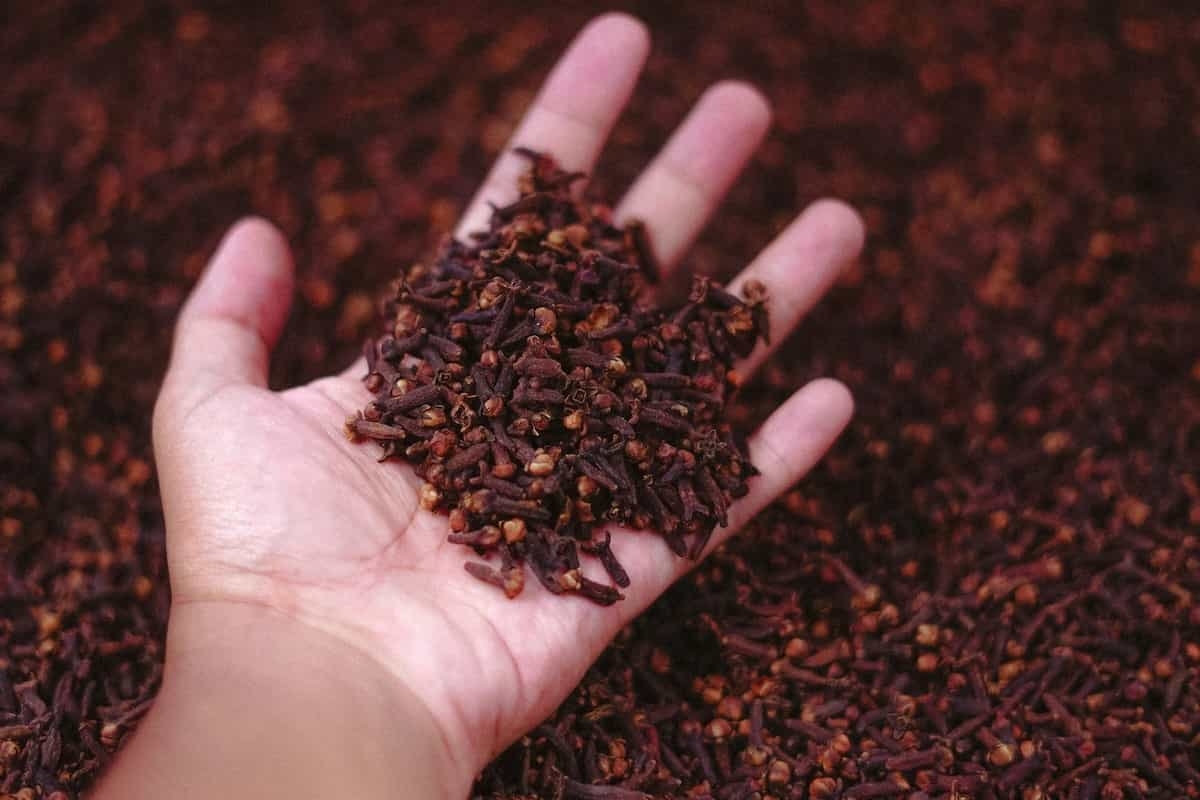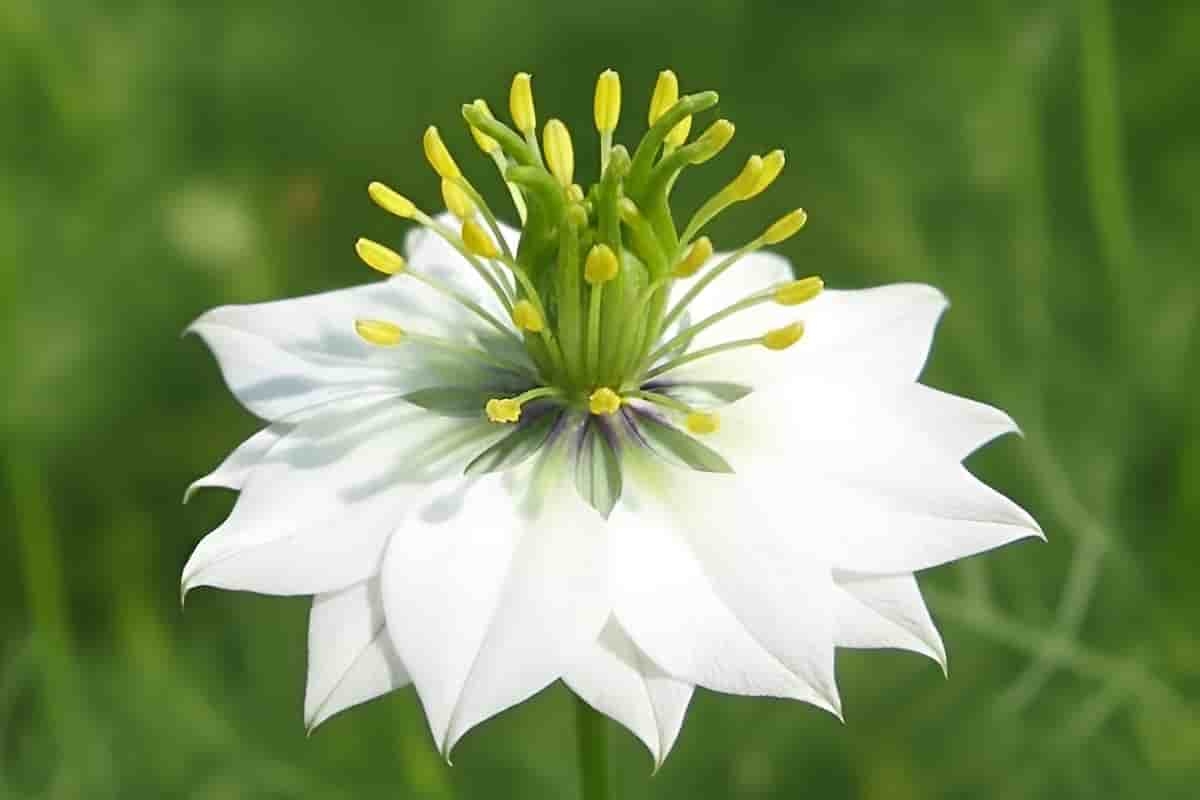Last update: January 22, 2025
6 minute read
Durian Fruit
Ever wondered why durian fruit is both adored and banned in public places? Dive into the world of this unique tropical treasure and discover its surprising health benefits.

By Stephanie Wright, RN, BSN
Edited by Dr. Jacquie Leone, NMD, HN

Durian, often called the "king of fruits," is a fascinating blend of delight and controversy. While its pungent aroma can lead to bans in public places, its rich nutritional profile and cultural significance make it a beloved treasure across Southeast Asia and beyond.
Packed with essential nutrients and antioxidants, durian offers numerous health benefits, from boosting energy to supporting immune health. Whether you're curious about its taste or intrigued by its health properties, durian invites an unforgettable experience that's worth exploring.
Key takeaways
- Durian is packed with essential nutrients, making it one of the most nutritious fruits globally
- Rich in antioxidants like anthocyanins and flavonoids, durian may help reduce the risk of some diseases
- Traditional medicine hails durian for treating ailments, using every part of the plant
The allure and mystery of durian
Have you ever caught a whiff of something so pungent it stopped you in your tracks? That just might have been durian, often dubbed the "king of fruits" in Southeast Asia. Despite its notorious smell, this spiky fruit is celebrated for its creamy texture and impressive nutritional profile.
Nutritional powerhouse
Let's talk about nutrients. Durian isn't just any fruit; it's a superfruit loaded with vitamins and minerals:
- Serving size: 1 cup
- Calories: 357
- Fat: 13 grams
- Carbohydrates: 66 grams
- Fiber: 9 grams
- Protein: 4 grams
But that's not all. It's brimming with:
- Vitamin C: Boosts immunity with 48 mg per cup, that’s 53% of the Daily Value (DV).
- B Vitamins: Essential for energy, including vitamin B1 (76% DV) and vitamin B6 (45% DV) at nearly 1 mg each.
- Minerals: Potassium (1 gram which is 23% DV) and magnesium (73 mg which is 17% DV) support heart health.
Antioxidant-rich goodness
Durian is more than just vitamins and minerals. It's rich in bioactive compounds like anthocyanins, carotenoids, polyphenols, and flavonoids. These powerful antioxidants play a role in:
- Reducing cancer risk
- Preventing heart disease
- Fighting infections
- Lowering blood sugar levels
The smell that causes a stir
Why does durian smell so...strong? The culprit is volatile sulfur compounds (VSCs).
While some detect a sweet, caramel-like aroma, others might compare it to a skunk or rotten eggs. This unique scent profile leads to durian being banned in many public places and hotels across Southeast Asia.
A fruit rooted in tradition
For centuries, durian has been used in traditional medicine throughout Southeast Asia for things like:
- High fever relief
- Treatment for jaundice
- Skin condition remedies
Notably, every part of the durian plant—fruit, leaves, husk, and roots—is used for medicinal purposes.
Genetics complexity
In 2017, scientists sequenced the durian genome, uncovering approximately 46,000 genes—nearly double that of humans. This research sheds light on:
- Ripening processes
- Flavor production
- Sulfur metabolism
VitaRx Tip
Understanding these genetic factors could lead to improved cultivation methods and new, innovative durian-based products.
Culinary uses and preparation
Intrigued but unsure how to enjoy durian? The fruit's versatile nature allows it to be included in a myriad of dishes:
- Fresh consumption: The simplest way to enjoy durian is to eat it fresh. Its creamy flesh is often savored on its own.
- Desserts: Durian is popular in sweets like ice cream, cakes, and pastries, adding a unique flavor profile.
- Beverages: Blend it into smoothies or shakes for a nutritious boost.
- Savory dishes: In some cultures, durian is used in curries and other savory recipes.
Start with small amounts to adapt to the taste and aroma.
From farm to market: challenges and innovations
Did you know that over 30% of durians in Thailand's markets might be unripe? Unripe durians are less desirable, leading to economic losses.
To tackle this, researchers are exploring ways to repurpose unripe durians:
- Producing durian flour from the pulp, peels, and seeds
- Creating health-promoting foods with added value
Worth its weight in gold!
Durian is such a prized commodity that certain varieties can sell for over $1,000 per fruit at auctions! Talk about a luxury bite.
Embracing the king of fruits
So, are you ready to give durian a try? Whether you're drawn to its health benefits or simply curious about its infamous aroma, durian offers a unique experience that's deeply rooted in Southeast Asian culture.
Dos and don'ts when trying durian
Do’s
Do start with small amounts to get accustomed to the taste.
Do try it in different forms—fresh, frozen, or as an ingredient.
Don’ts
Don't bring durian into places where it's prohibited.
Don't pair it with alcohol to avoid potential discomfort.
Exploring new horizons
Trying durian isn't just about tasting a new fruit; it's about embracing a cultural icon. From its rich nutritional profile to its well-known place in traditional medicine, durian invites you to explore the wonders of tropical abundance.
Health considerations
While durian is nutritious, it's important to be mindful of your overall diet. For those interested in how nutrition affects broader health aspects like digestion or metabolism, exploring resources on topics like the best sleeping positions for optimal digestion can offer valuable insights.
Frequently asked questions (FAQ)
Here are some of the most frequently asked questions about durian fruit.
Final thoughts
Exploring new foods can be an adventure. Durian might challenge your senses, but it also promises a wealth of nutrients and a glimpse into a rich cultural tradition. Who knows, you might just become a fan of this spiky, aromatic king of fruits.
Sources and references
- Exploring the chemical composition, emerging applications, potential uses, and health benefits of durian: A review - ScienceDirect
- Nutrition Facts for Durian
- Elucidation of the Anticancer Mechanism of Durian Fruit (Durio zibethinus) Pulp Extract in Human Leukemia (HL-60) Cancer Cells - PMC
- The Possible Reduction Mechanism of Volatile Sulfur Compounds during Durian Wine Fermentation Verified in Modified Buffers - PMC
- Chemical constituents and pharmacological effects of durian shells in ASEAN countries: A review - PMC
- The draft genome of tropical fruit durian (Durio zibethinus) | Nature Genetics
- Durian, raw or frozen, 1 cup, chopped or diced - Health Encyclopedia - University of Rochester Medical Center
Author

Stephanie Wright
Stephanie brings over 13 years of diverse nursing experience to the table, having honed her expertise in critical care, mental health, and utilization management. Her journey as a registered nurse across these various healthcare sectors underscores her adaptability and deep commitment to patient care.
Fact checker

Dr. Jacquie Leone
Dr. Leone holds a BA in Psychology, a Doctorate in Naturopathic Medicine, and board certification in holistic nutrition. In addition to practicing medicine, Dr. Leone has developed and currently teaches science and nutrition courses for a nationally accredited institution. She specializes in chronic illness, gastrointestinal dysregulation, inflammatory conditions, and mental health. Her unique approach combines the wisdom of Eastern medicine with the technology and science of Western medicine, offering an integrative approach heavily focused on functional medicine.
At VitaRx, we're not just passionate about our work — we take immense pride in it. Our dedicated team of writers diligently follows strict editorial standards, ensuring that every piece of content we publish is accurate, current, and highly valuable. We don't just strive for quality; we aim for excellence.
Related posts
While you're at it, here are some other relevant articles you might be interested in.

Get your personalized vitamin recommendations in less than
5 minutes.
Get your personalized vitamin recommendations in less than
5 minutes.








